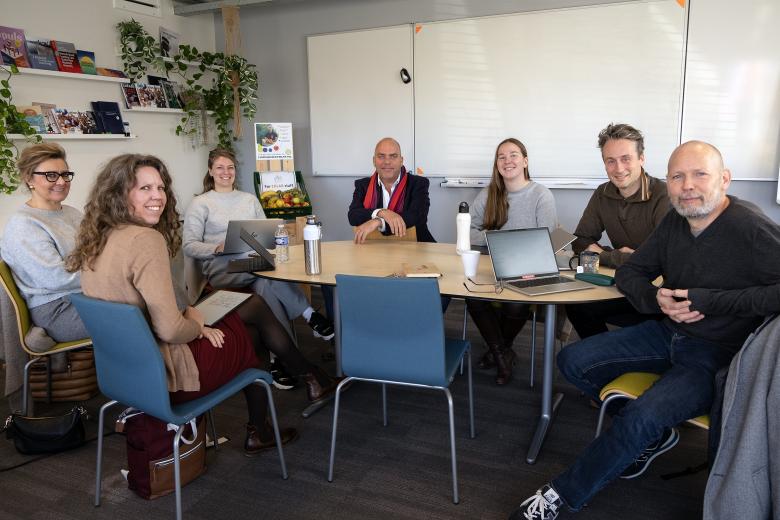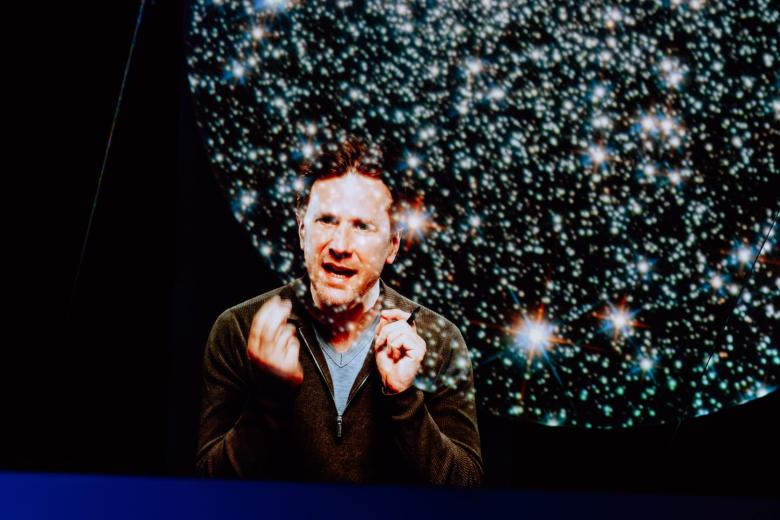What are the green claims of companies based on?
You have most likely seen internationally renowned companies' claims stating their products are "carbon neutral" or have heard that you can fly, buy new clothes or eat certain foods without exacerbating the climate crisis. But what are these claims built on?
Etienne Hoekstra
Consumer Pressure
Due to increased pressure from consumers, markets, and governments, companies feel pressured to demonstrate their active contribution to solving the climate crisis. As a result, more and more companies set carbon reduction targets. Credible targets require clear pathways towards reducing greenhouse gas (GHG) emissions aligned with the Paris Agreement (Streck et al., 2022).
Even though consumers sometimes tend to believe that carbon-neutral claims imply an absolute reduction in carbon emissions, most companies rely on carbon offsetting as part of their net-zero strategies (The Advertising Standards Authority, 2022).
What is carbon offsetting?
Offsetting cannot replace emission reduction efforts but is supposed to compensate for residual, unavoidable emissions. Companies buy carbon credits for every ton of residual greenhouse gas (GHG) emissions (Streck, Dyck, Manirajah & Armenteros, 2022). Demand quadrupled the value of the Voluntary Carbon Market (VCM) to $2 Billion in 2021, while prices of carbon credits rose by nearly 60% (Forest Trends' Ecosystem Marketplace, 2022).
To generate carbon credits, VCM projects must demonstrate that their activities lead to GHG emission reductions and removals beyond those that would have occurred without the carbon activity, commonly referred to as "additionality". These emission reductions or removals are quantified against a baseline or reference level, a counterfactual scenario of what would have occurred without the VCM project or program. Conservative reference scenarios are essential for the credibility of baselines, but what does the practice look like (Streck et al., 2022)?
How credible are carbon standards?
The VCM is built on trust. Transactions between buyers and sellers of carbon credits mainly occur over the counter, as no central regulatory body governs the market. Instead, certification programmes and standards have been developed to promote transparency, credibility and accountability in the VCM.
While the rapidly increasing value of VCMs reflects the high confidence of corporate buyers, criticism is growing, especially towards avoided deforestation projects – with 30% the most prominent single offset type (in 2020) (Forest Trends' Ecosystem Marketplace, 2022). Based on a joint scientific study on the majority of forest offset projects (commonly known as REDD+ schemes) certified by Verra, the world's leading carbon standard for the VCM, the Guardian concluded the following (Greenfield, 2023):
"[M]ore than 90% of [Verra's] rainforest offset credits – among the most commonly used by companies – are likely to be "phantom credits" and do not represent genuine carbon reductions."
The Guardian also encountered severe human rights issues on-site at Verra's flagship project in Peru, where smallholder farmers claimed to be victims of land grabs while park guards and police cut down their homes with chainsaws and ropes. They reported forced evictions and tensions with park authorities (Greenfield, 2023).
The responsibility of companies buying carbon credits
Dozens of companies and organisations have bought rainforest offsets approved by Verra for environmental claims. In reaction, some companies simply stated that the credits bought were certified by Verra, the "world's leading certification organisation" (Greenfield, 2023).
However, relying on Verra's approval and the certifying agencies is not enough. According to Thales West, a lead environmental economist at the Free University in Amsterdam, Verra's "methodologies are based on fragile assumptions. That makes them fundamentally unreliable. There is much room to game the system" (Crezee, & Gijzel, 2023).
Therefore, companies buying carbon credits should find out for themselves whether the projects they are leaning on actually offset emissions. West, who previously worked as a certifier of forest projects, stated that "buyers themselves need to have a good understanding of the underlying methodologies and analyses. Because depending on how you calibrate the models, you can trigger an explosion of [supposedly avoided] deforestation - exactly what we see happening in some projects." (Crezee, & Gijzel, 2023).
In response to misleading or socially irresponsible advertising concerning the environment, the Advertising Standards Authority set out new, significantly stricter standards for net-zero and sustainability claims (The Advertising Standards Authority, 2023).
The role of climate consultants
While Verra denied all allegations and questioned the research methodology of The Guardian's research group, Follow the Money revealed that South Pole, the world's most influential climate consultancy, sold fictitious (mainly avoided deforestation) emissions allowances to hundreds of companies for years, including Gucci and Volkswagen. Follow the Money's perusal of internal documents from the South Pole and interviews with multiple sources reaffirmed that many green claims by the world's leading climate consultant clients appear to exist only on paper (Crezee, & Gijzel, 2023).
Moreover, South Pole employs many climate consultants. Follow the Money stated that they are part of the climate solutions department, which has a joint turnover with carbon credit traders. As a result, they risk wearing multiple hats. When a company inquires how to reduce its climate footprint, South Pole's climate consultants may be more inclined to advise carbon offsets and refer the customer to their colleagues in sales, while the climate would benefit more from advice that helps the company to mitigate its emissions (Crezee, & Gijzel, 2023).
According to the South Pole, there is a clear demarcation between consultants and traders, as clients would enter into separate sales agreements for climate advice and carbon credits. No other guarantees are mentioned. However, South Pole does stress that providing climate advice and selling carbon credits are both necessary to meet climate targets (Crezee, & Gijzel, 2023).
Read the interview with ACORN's strategy lead Emma van de Ven to find out how to change the status quo in the Voluntary Carbon Market.
Bibliography
The Advertising Standards Authority (ASA). (2022, 20 October). Environmental Claims in Advertising Qualitative Research Report. Downloaded from https://www.asa.org.uk/static/6830187f-cc56-4433-b53a4ab0fa8770fc/CCE-Consumer-Understanding-Research-2022Final-090922.pdf
The Advertising Standards Authority (ASA). (2023, 10 February). Advertising Guidance - misleading environmental claims and social responsibility. Downloaded from https://www.asa.org.uk/static/d819e399-3cf9-44ea-942b82d5ecd6dff3/a79e0147-5417-4f7c-9fdce878078a7ffe/CAP-guidance-on-misleading-environmental-claims-and-social-responsibility.pdf
Crezee, B. & Gijzel, T. (2023, 27 January). Showcase project by the world's biggest carbon trader actually resulted in more carbon emissions. Retrieved from https://www.ftm.eu/articles/south-pole-kariba-carbon-emission
Forest Trends' Ecosystem Marketplace. (2022). The Art of Integrity: State of Voluntary Carbon Markets, Q3 Insights Briefing. Washington DC: Forest Trends Association
Greenfield, P. (2023, 18 January). Revealed: more than 90% of rainforest carbon offsets by the biggest certifier are worthless, analysis shows. Retrieved from https://www.theguardian.com/environment/2023/jan/18/revealed-forest-carbon-offsets-biggest-provider-worthless-verra-aoe
Streck, C., Dyck, M., Manirajah, S.M. & Armenteros, M.F. (2022, 13 December). Voluntary Carbon Markets: Considerations for Host Countries. Climate Focus. Downloaded from https://climatefocus.com/wp-content/uploads/2022/12/VCM-considerations-for-host-countries.pdf
Also read
-
Teacher Information Points at UM
UM faculties now host Teacher Information Points (TIPs) that offer local, “just-in-time” and on-demand support for teaching staff. The aim is simple: to provide help that is closely connected to day-to-day teaching practice.

-
As a teacher, how confident are you in your digital skills? Discover your capabilities in just 25 minutes
Maastricht University invites all teaching staff to take part in the Jisc Discovery Tool pilot to explore your digital strengths.

-
In Kerkrade, you can listen to the invisible universe
UM and Discovery Museum in Kerkrade make the Einstein Telescope understandable for everyone.
